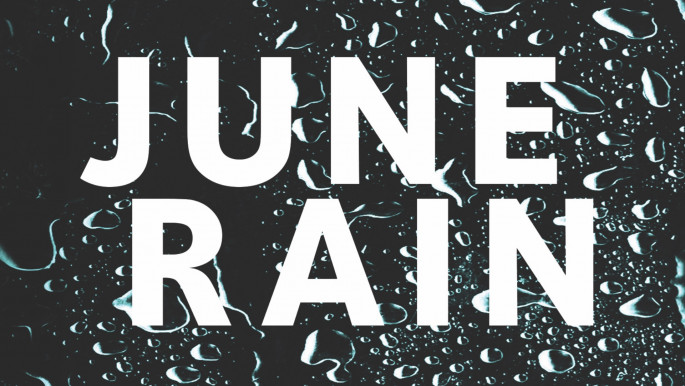Writings on the Wall: Palestinian Oral Histories
This collection of Palestinian testimonies spanning decades, collated by the Arab Educational Institute and edited by Thomas Suarez, goes back to settler-colonial history to illustrate how early Zionist narratives laid the foundations for the contemporary erasure of the Palestinian presence and memory.
"Throughout human history, fictions – 'narratives' - have been invested to justify injustice … And among the truths silenced by this narrative are the voices of the ordinary people who are its direct victims," Suarez writes.
From the Nakba to current violations experienced under Israel's military occupation, Palestinian testimonies are marked with resilience.
Accompanied by photographs and detailed factual text in order to contextualise the people's memory of their experienced history, the book conveys insight into the Palestinian process of remembering.
The Palestinian desire to return to their land, borne out of forced exile, remains at the helm, even when the testimony does not include a direct mention of the 1948 Nakba.
 |
|
| Read more from The New Arab's Book Club: June Rain: A powerful portrait of identity and division in Lebanon |
Palestinians are trapped in a political process that is depleting them of land and people, while their memory grapples with unity and loss. This paradox is illustrated in memories of the ethnic cleansing of Ein Karem, a village near Jerusalem, and a Palestinian family home taken over by settlers.
What keeps Palestinian resilience alive is the tenacity to return, as articulated in one testimony from this collection: "She kept the memory of her home alive and dreamt she would return, at least once, before she died."
Exiled as a child in 1948 and forced to live in a small, rented house, Nadine from Bethlehem recalls: "We entered without any single word although we were inquiring: Why did we leave our large house with the lovely garden around it?"
In refugee camps, the difference is more pronounced. "The refugee camps have changed and developed, but they are still refugee camps and we are still here," Yussef states.
Both testimonies, although narrating different experiences, reflect the UN's role in Israel's creation and the dispossession of Palestinians.
For Palestinians, their right to defend their land through an anti-colonial struggle was further dealt a blow as the international community recognised Israel and disregarded the exile of Palestinians.
As such, just living under Israeli military rule became an act of resilience in itself.
 |
From the Nakba to current violations experienced under Israel's military occupation, Palestinian testimonies are marked with resilience |  |
In the book, Palestinians recount helping school children being tear-gassed by Israeli soldiers, assuming responsibility for children who were not their own to shield them from further military aggression. On one absurd occasion, an Israeli settler accused a 10-month-old baby of throwing a stone.
During house raids, children would even be able to anticipate the cycle of violence, as Carol from Bethlehem recalled: "Upstairs, my children would be crying, 'Now is the time for shooting'."
Israel's separation wall and its restrictions on Palestinian freedom are best summed up by Safa', who refers to her faded dreams. "You become enraged, walking without a destination as if you are in complete darkness, encircled by a wall."
The concept of the wall here features as a metaphor, however, it is a daily reality for Palestinians in the occupied West bank, whose lives were redesigned and restricted to accommodate Israel's security narrative.
 |
|
| Read more from The New Arab's Book Club: Palestinian Cinema in the Days of Revolution |
The wall's presence prevents Palestinians from cultivating their lands and visiting their relatives, disrupting social relations in Palestinian lives.
"We are imprisoned here in Bethlehem," said Antoinette. "All my relationships with Jerusalem are dead."
The economic implications of the wall are also highlighted by Palestinians, who reflect upon the fact that they have to buy oil instead of producing their own from the olive harvest.
Suarez makes some important observations within the context of these collected testimonies. Focusing upon the concepts of holding identity hostage, Suarez notes that the Israeli narrative has created a human shield "to insulate the state from accountability."
"The Palestinians are not the only ones caught behind an Israeli wall; much of the global public is sequestered behind one as well," Suarez writes.
The misinformation and propaganda spread by Israel can only be countered by Palestinian memory and its dissemination. This collection of brief testimonies emphasises the repetitive violations which require persistent resistance by Palestinians.
It is in the details of daily life that Palestinians keep rising against settler-colonialism.
The global public, as Suarez indicates, would do well to make an effort to see beyond the generalised image of Palestinians, to get a glimpse into lives shattered by exile and held together by a dream of return.
Ramona Wadi is an independent researcher, freelance journalist, book reviewer and blogger specialising in the struggle for memory in Chile and Palestine, colonial violence and the manipulation of international law.
Follow her on Twitter: @walzerscent
Opinions expressed in this article remain those of the author and do not necessarily represent those of The New Arab, its editorial board or staff
The New Arab Book Club: Click on our Special Contents tab to read more book reviews and interviews with authors:
 |
|





 Follow the Middle East's top stories in English at The New Arab on Google News
Follow the Middle East's top stories in English at The New Arab on Google News


